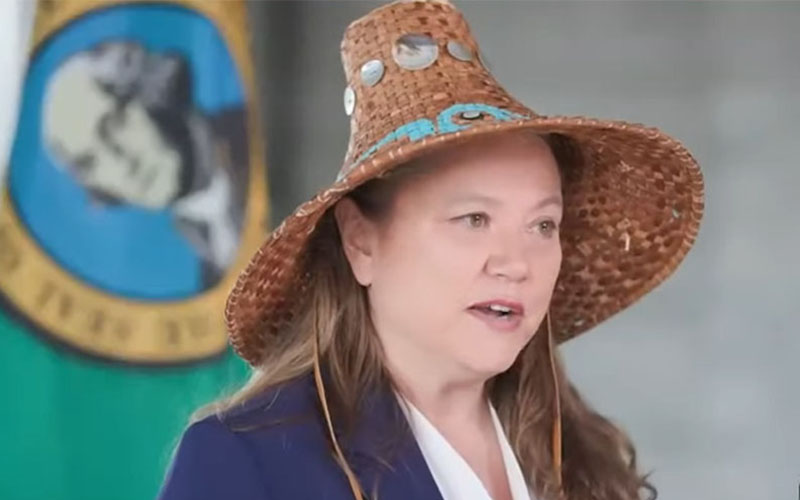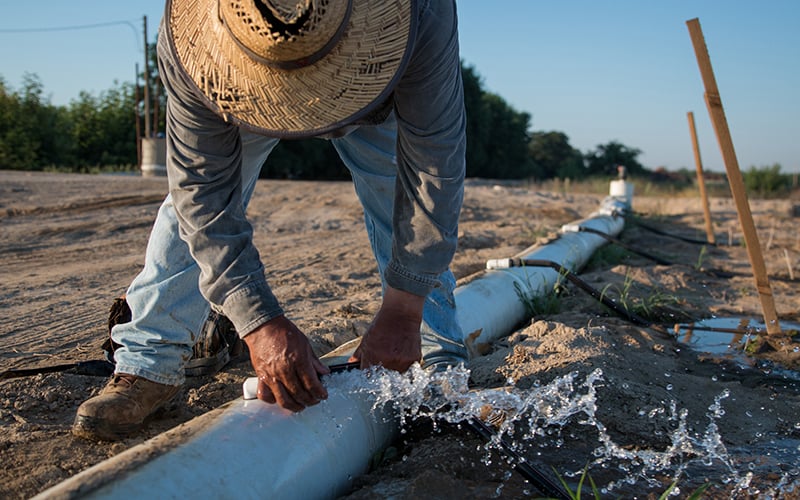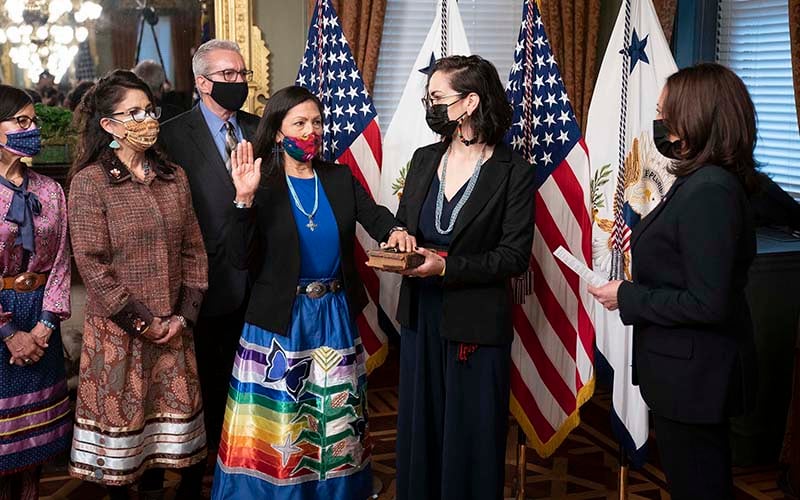WASHINGTON – Tribal governments have “a foot in the door” with the federal government but they don’t yet have a seat at the table where decisions concerning them are being made, the president of the National Congress of American Indians said Monday.
Fawn Sharp’s comments came during the annual State of Indian Nations Address, in which she outlined the progress made by tribal communities in the last year and NCAI’s priorities for the coming year.
Sharp called on the federal government to respect tribal sovereignty by including Indigenous leaders in discussions on everything from climate change to infrastructure and economic recovery.
“From the administration to federal lawmakers and to state governors, it is your duty to respect our right to self-governance, to work with us for the betterment of the people we serve, and to fully honor the trust and treaty obligations this country holds with tribal nations,” Sharp said.
Leaders of multiple Arizona tribes did not respond to requests for comment on Sharp’s address Monday.
Sharp, a member of the Quinault Indian Nation, also noted the fact that six Native Americans have been named to offices in the Biden administration, which she said is the most ever. But that is just a start, she said.
“It isn’t enough to have a foot in the door,” Sharp said. “Tribal nations must have a seat at the table where key decisions are being made.”
Indigenous representatives are also making inroads in Congress, with five current House members who belong to tribes or are Native Hawaiian. Among them is Rep. Sharice Davids, D-Kan., who gave this year’s congressional response to Sharp’s address.
Davids, a member of the Ho-Chunk Nation, leads the bipartisan Congressional Native American Caucus with Rep. Tom Cole, R-Okla., who is a member of the Chickasaw Nation. She said the caucus is working to educate Congress on issues facing tribal communities and ensuring that their priorities are being centered during policy discussions.
One of the priorities that Sharp emphasized is engaging tribes in the development of vital infrastructure on Native lands.
She praised Congress for passing the bipartisan infrastructure bill last November, which includes $13 billion for projects like developing clean water resources and expanding broadband services on Native lands. But Sharp said the federal government still needs to support conversations with tribal leaders and work to efficiently implement these resources.
“Consultation is simply not negotiable,” she said. “I call on the Biden administration to ensure that tribal nations are consulted with free, prior and informed consent, to ensure the infrastructure planning that’s occurring across this country has tribal nations’ feedback embedded within each blueprint.”
Sharp attributed the law’s investment in Native lands to the work Indigenous leaders and advocates have done in demanding the federal government’s support. Davids agreed, saying caucus members “worked diligently” to guarantee that the infrastructure bill included the funding Indian Country needs.
“I absolutely made sure to communicate at every single meeting we had during negotiations … those resources need to be there,” Davids said.
Sharp also said Native people are key to advancing the fight against climate change. Traditional land-management systems developed by Indigenous communities can help protect tribal land and resources from natural disaster, she said, citing wildfire prevention measures California adopted from the Karuk tribe.
“It is our sovereign right to manage and protect our resources,” Sharp said. “And it’s the federal government’s responsibility to ensure that is carried out through cooperative agreements concerning both state and federal lands.”
She said Indigenous people’s deep knowledge of the Earth’s biodiversity also gives them a unique chance to aid in the climate crisis on an international scale.
Last year, Sharp was the first tribal leader to be part of the U.S. delegation at the United Nations Climate Change Conference, which she said sets a precedent for the inclusion of Indigenous people at future international climate conferences.
“There is a new opportunity on the horizon for tribal nations in the post pandemic economic recovery world to be part of this global conversation,” Sharp said. “Our tribal nations’ sovereign standing demands that we are part of the discussion.”



